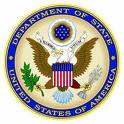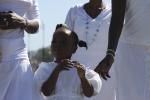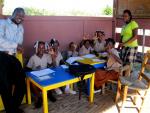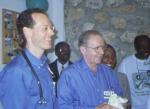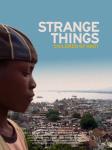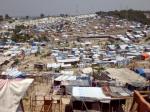Peace Corps/Friends of Haiti Launched
 While there is not an active Peace Corps program in Haiti, the organization continues to make a difference in Haiti through the 507 Returned Peace Corps Volunteers (RPCVs) who served between 1982-1987, 1990-1991, and 1996-2005. In March, Peace Corps/Friends of Haiti (PCFOH) became the newest “Friends Of” Group to be recognized by the National Peace Corps Association. You don’t have to be an RPCV to get involved! Take a look at our temporary website (we'll improve it as time goes on), join in discussions about Haitian development issues, and feel free to reach out to us with your feedback and ideas.
While there is not an active Peace Corps program in Haiti, the organization continues to make a difference in Haiti through the 507 Returned Peace Corps Volunteers (RPCVs) who served between 1982-1987, 1990-1991, and 1996-2005. In March, Peace Corps/Friends of Haiti (PCFOH) became the newest “Friends Of” Group to be recognized by the National Peace Corps Association. You don’t have to be an RPCV to get involved! Take a look at our temporary website (we'll improve it as time goes on), join in discussions about Haitian development issues, and feel free to reach out to us with your feedback and ideas.


